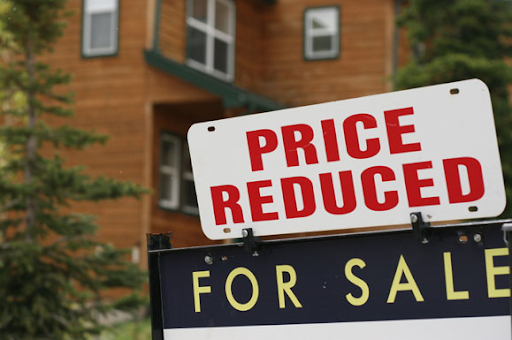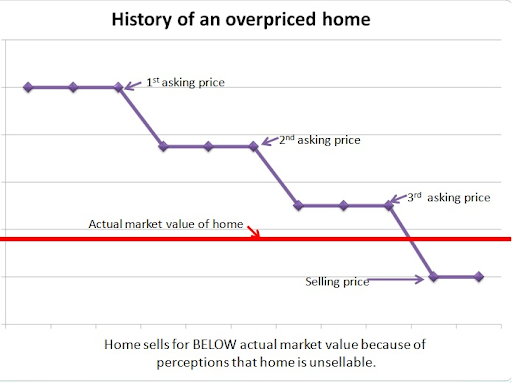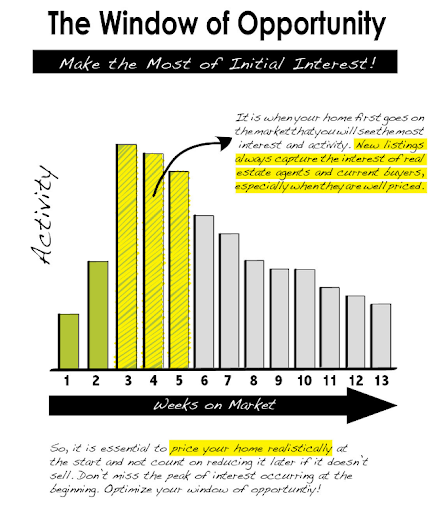When the real estate market favors sellers, it’s almost like there’s a feeding frenzy among buyers trying to secure listings that seem to get snapped up within hours of being put on the market.
Such demand drives the prices of homes up rapidly, which only feeds into the perception that the good times will last forever.
Unfortunately, trees don’t grow to the sky and there will always be a top of the market. What this means is that even though it’s a sellers market, home prices are increasing and there are often multiple offer situations, overpriced homes still have trouble selling or selling at all.
I’ll say it again, well-priced homes sell great in any market, but overpriced homes will always sit on the market longer and negatively impact the seller.
Here’s what happens when you overprice your home:
-
You rarely sell for full price (or even market value)
The market knows what the market knows. Even in the hottest of markets, buyers are only going to pay so much for a home.
Sure, there are homes that sell for over market value, but that’s often because a multiple offer situation drove up the original price at which the home was listed.
The first thing that a buyer’s agent is going to do when their buyer wants to make an offer on a home is to provide them with some comparable sales of other similar homes in the area. It the numbers make sense, the buyer will heavily consider putting in an offer. If they don’t, the buyer might put in a lower offer, but they also might just move on.
What buyers usually won’t do, though, is pay for an overpriced home, which means it stays on the market longer and then sells for less than full price and less for what the actual market value would be.
-
Agents stop showing your home
Real estate agents only get paid when they sell a home. Consequently, they seek to show homes to their buyers that they feel they have a legitimate shot on which they can get an accepted offer.
As mentioned previously, when they’re buyer finds a home they like, agents will do their due diligence and make sure the home is priced properly. It’s the first thing they do in the process because if the home isn’t priced properly — and they don’t feel that the seller will be reasonable in negotiations — they're not going to spend the time submitting an offer on behalf of their buyers.
As many as 71% of the homessold are done with agents who bring a buyer to the sale. Knowing what you now know, it’s important that you don’t overprice your home so as to not keep agents from wanting to show and sell your home.
-
Buyers will lose interest in your home
It’s been said that if you don’t get an offer on your home in the first 21 days on the market, it’s likely not going to sell for full price.
Now, that might be a little aggressive, but the data shows that the numbers aren’t that far off.
If you overprice your home, buyers — and even real estate agents — will lose interest in your home.
New homes are coming on the market all the time, whetting people’s appetites for new listings whetted. If you over price your home, you run the risk of having buyers look at it, see that it’s not priced well and then moving on, for good, to find a home that meets their needs.
Unfortunately, not long after your home has been on the market for a month, it’s going to be hard to get a full price offer or even an offer at all.
At the end of the day, you need to trust the agent you’ve chosen to work with. If they are recommending a specific price, then it’s likely that’s the best price for your home.


